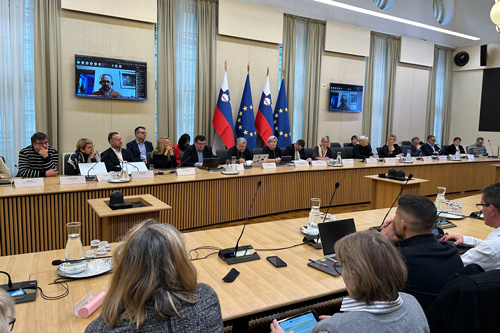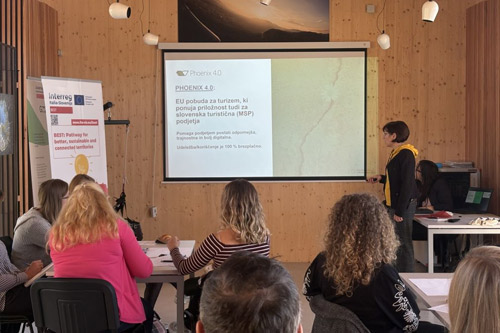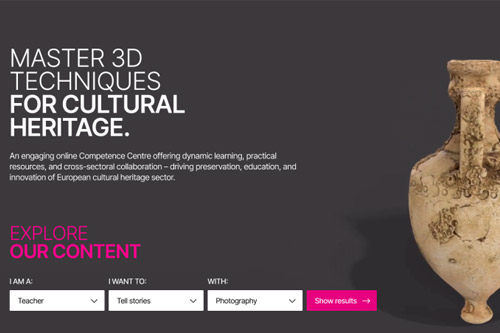
Insights from the Ministry of Digital Transformation Consultation
In a landmark event organized by the Ministry for Digital Transformation, stakeholders from across Europe converged to explore the myriad benefits, challenges, and best practices associated with data rooms. The consultation, attended by over a hundred participants, featured representatives from the European Commission, national administrations, local authorities, businesses, and domain experts in data management.
One of the contributors to the discussion was Dr. Urska Starc Peceny, Head of Tourism 4.0 at Arctur. With Arctur being the sole Slovenian stakeholder involved in three EU data spaces—Tourism (preparatory), Media (deployment), and Heritage (content providers)—Dr. Starc Peceny brought invaluable perspectives on leveraging data to fuel digital innovation. This places Arctur at the forefront of shaping the future of digital ecosystems within these domains.
The consultation marks a significant milestone for Slovenia as it embarks on establishing data spaces, laying the groundwork for a robust and trustworthy data market. This initiative holds immense promise for driving economic growth, fostering innovation, and enhancing collaboration across borders.
The event not only highlighted the opportunities presented by data spaces but also underscored the importance of addressing certain caveats and setup necessities. While the potential benefits are vast, it is crucial to navigate issues related to data privacy, security, interoperability, and governance frameworks effectively.
Data spaces offer a platform for organizations to share, collaborate, and innovate, driving efficiency and creating new value propositions. As Europe progresses towards a data-driven future, initiatives like the Ministry of Digital Transformation consultation play a pivotal role in shaping policies, fostering collaboration, and unlocking the full potential of data. By harnessing the power of data spaces, we can pave the way for a more connected, resilient, and prosperous digital economy.
In conclusion, the consultation served as a catalyst for dialogue, collaboration, and action, setting the stage for a data-driven revolution that transcends boundaries and propels Europe towards a brighter, more sustainable future.



